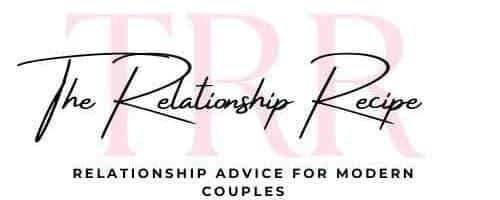When Love Feels Like an Attack: The Strange Psychology of Partners Who Strike When You’re Down
You’re curled up on the couch, barely holding yourself together. Maybe you lost someone. Maybe you’re sick. Maybe the world just feels too heavy today.
And that’s when it happens.
Your partner, the person who’s supposed to be your safe place, comes at you with words that cut. Or silence that stings. Or cruelty that makes you wonder if you ever knew them at all.
Here’s the question that keeps you up at night: Why now? Why, when you’re already bleeding, do they twist the knife?
The answer isn’t what you’d expect. And it says everything about them, nothing about you.
When Your Pain Becomes Their Power
Some people don’t comfort vulnerability. They exploit it.
When you’re emotionally overwhelmed or physically struggling, something shifts in certain partners. Your weakness doesn’t inspire their compassion; it feeds something darker: a warped sense of control. A perverse validation of their importance in your world.
Your pain becomes proof they still matter, even if that proof comes wrapped in cruelty.
Therapists call this “narcissistic supply.” It’s attention as currency, and your suffering is legal tender.
But here’s what they won’t tell you in couple’s therapy: for some partners, watching you hurt isn’t a side effect of their issues. It’s the point.
The Puppeteer’s Playbook
Think about when a narcissistic partner strikes. It’s rarely random.
They wait until you’re vulnerable. Until you need them most. Then they dominate, manipulate, or withdraw just enough to keep you off-balance. You cry, they feel powerful. You doubt yourself, they feel superior. You reach for them, they decide whether you deserve comfort.
The twisted logic goes deeper than you’d imagine. When you’re hurting, they’re not thinking about your healing. They’re thinking about how your reaction reflects back on them. How your distress validates their significance. How your need proves their control.
Your vulnerability isn’t calling out their empathy. It’s triggering their appetite for dominance.
The Projection Game Nobody Wins
Here’s where it gets complicated.
Sometimes partners hurt you when you’re down because they’re running from their own darkness. Your pain becomes a convenient mirror to avoid looking at themselves. Instead of confronting their insecurities, guilt, or unhealed trauma, they zero in on yours.
Psychologists call this projection and deflection. You call it confusing as hell.
They make your distress the problem so they don’t have to face their own. They create chaos in your emotional world to avoid the uncomfortable work of introspection. Your suffering becomes the distraction from whatever they’re too scared to name in themselves.
But here’s the brutal truth: their inability to face their demons doesn’t give them permission to create yours.

The Red Flags You’ve Been Ignoring
You know that thing your partner does, where they’re charming one day and cruel the next? That Jekyll and Hyde routine that leaves you constantly guessing?
That’s not passion. That’s not complexity. That’s intermittent reinforcement, and it’s one of the most effective tools of emotional abuse.
The charm makes you hope. The cruelty makes you hurt. The cycle makes you stay.
Then there’s the gaslighting. The way they twist facts until you’re second-guessing your own memory. The way they make you feel crazy for feeling hurt.
And slowly, almost invisibly, they isolate you. Not always dramatically, but through guilt, criticism, subtle pressure. Your world gets smaller. They become the center. Your choices narrow until you’re not sure which decisions are even yours anymore.
If any of this feels familiar, your gut isn’t wrong. It’s trying to save you.
The Question You’re Afraid to Ask
Is it normal for a partner to find satisfaction in your pain?
No. Full stop.
In healthy relationships, your hurt is met with care, not cruelty. Your vulnerability invites tenderness, not tactics. If you’re noticing patterns where your pain seems to fuel your partner’s anger or control, you’re not in a rough patch.
You’re in emotional harm.
Someone who uses your struggling moments as opportunities for dominance isn’t showing you their stress response. They’re showing you who they are. And you need to believe them.
What Happens Next
Understanding why someone hurts you can bring clarity. But clarity isn’t the same as closure, and it’s definitely not the same as healing.
If you’re reading this and seeing your relationship in these patterns, you already know something’s wrong. The question isn’t whether you should be concerned. It’s what you’re going to do about it.
Safety comes first. Always. If you feel immediate danger, reach out to emergency services or trusted people without delay. The National Domestic Violence Hotline (1-800-799-7233) is there 24/7.
Leaving takes courage. Staying safe takes planning. Healing takes support. You don’t have to figure it out alone, and you don’t have to stay in pain to keep the peace.
Your hurt isn’t a dumping ground for someone else’s damage. Your vulnerability isn’t an invitation for cruelty. And your need for comfort doesn’t make you weak; it makes you human.
The person who’s supposed to love you should be honored by your trust, not threatened by your tears.
If they’re not, that tells you everything you need to know.
Resources:
- National Domestic Violence Hotline: 1-800-799-7233
- National Network to End Domestic Violence: nnedv.org
- National Coalition Against Domestic Violence: ncadv.org
This article is for informational purposes only and does not constitute professional advice. If you’re in an abusive relationship, please seek professional help and prioritize your safety.
This post may contain affiliate links. I earn from qualifying Amazon purchases at no extra cost to you. This content is for informational purposes only and is not a substitute for professional advice. Read full disclaimer.
Thank you for reading this post, don't forget to subscribe!







